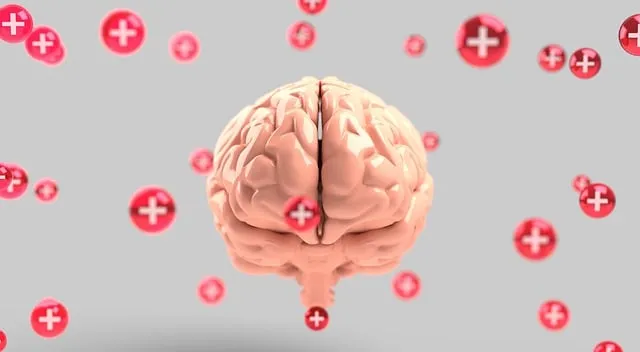Kaiser Permanente Mental Health Englewood emphasizes emotional intelligence (EI) as a cornerstone of holistic well-being, offering programs focused on self-awareness, empathy, and communication skills. Their approach combines mindfulness practices for stress reduction and resilience building with evidence-based techniques tailored to individual needs. By fostering EI through workshops and supportive settings, they aim to empower community members to manage emotions, improve relationships, and better cope with life's challenges, integrating cultural sensitivity into healthcare delivery.
Emotional intelligence (EI) is a powerful tool for enhancing mental well-being, especially within healthcare settings like Kaiser Permanente Englewood. This article explores how EI can improve mental health and offers practical strategies for development. We delve into the impact of mindfulness and self-awareness, highlighting their role in fostering effective communication, empathy, and stress management—essential skills for Kaiser Permanente Englewood employees and patients alike.
- Understanding Emotional Intelligence and Its Impact on Mental Health
- Strategies for Developing Emotional Intelligence at Kaiser Permanente Englewood
- The Role of Mindfulness and Self-Awareness in Enhancing Emotional Intelligence
Understanding Emotional Intelligence and Its Impact on Mental Health

Emotional intelligence (EQ) is a powerful tool that significantly influences mental health and overall well-being. It involves recognizing, understanding, managing, and effectively utilizing one’s own emotions and the emotions of others. Kaiser Permanente mental health Englewood professionals recognize that high EQ can foster better relationships, enhance communication, and promote healthier coping mechanisms. By developing emotional intelligence, individuals become more adept at navigating life’s challenges and stresses, thereby reducing the risk of mental health crises.
In the context of healthcare, especially with the increasing focus on patient-centered care, empathy building strategies and crisis intervention guidance are essential components of comprehensive treatment plans. Healthcare provider cultural competency training plays a crucial role in improving EQ by enabling professionals to connect more deeply with patients from diverse backgrounds. This not only enhances patient satisfaction but also contributes to better mental health outcomes for communities served by Kaiser Permanente Englewood.
Strategies for Developing Emotional Intelligence at Kaiser Permanente Englewood

At Kaiser Permanente Mental Health Englewood, we recognize that emotional intelligence (EI) is a cornerstone of overall well-being. Our strategies for developing EI focus on empowering individuals to understand and manage their emotions effectively, fostering healthier relationships, and promoting emotional resilience in both personal and professional settings. We offer a range of programs and workshops designed to enhance self-awareness, empathy, and communication skills, all vital components of EI.
Through these initiatives, Kaiser Permanente Englewood aims to provide practical anxiety relief and stress management techniques tailored to individual needs. Our approach integrates evidence-based practices in a supportive environment, encouraging participants to explore their emotional responses, build coping mechanisms, and cultivate a deeper sense of emotional well-being promotion techniques. By investing in the development of EI, we empower our community to navigate life’s challenges with greater ease and enhance their overall mental health.
The Role of Mindfulness and Self-Awareness in Enhancing Emotional Intelligence

Mindfulness and self-awareness are integral components of building emotional intelligence. Engaging in mindfulness practices allows individuals to cultivate a deeper understanding of their emotions, both positive and negative. By promoting present-moment awareness, mindfulness enables people to recognize and accept their feelings without judgment. This practice is particularly valuable in managing stress and cultivating resilience, as highlighted by Kaiser Permanente mental health services in Englewood.
Self-awareness, on the other hand, involves introspecting to gain insights into one’s values, strengths, weaknesses, and emotional triggers. It fosters the ability to reflect on personal experiences and understand their impact on emotions and behaviors. This increased self-understanding facilitates better decision-making and problem-solving, enhancing social skills training and cultural sensitivity in mental healthcare practice. Additionally, it empowers individuals to communicate more effectively, empathize with others, and navigate complex interpersonal relationships.
Emotional intelligence is a powerful tool for enhancing mental well-being, as discussed throughout this article. Strategies like mindfulness practices and self-awareness exercises, implemented at Kaiser Permanente mental health centers in Englewood, can significantly improve emotional regulation and understanding. By fostering emotional intelligence, individuals can build stronger relationships, make better decisions, and lead more fulfilling lives. These techniques offer a holistic approach to personal growth, empowering folks at Kaiser Permanente Englewood and beyond to navigate life’s challenges with increased resilience and self-compassion.






